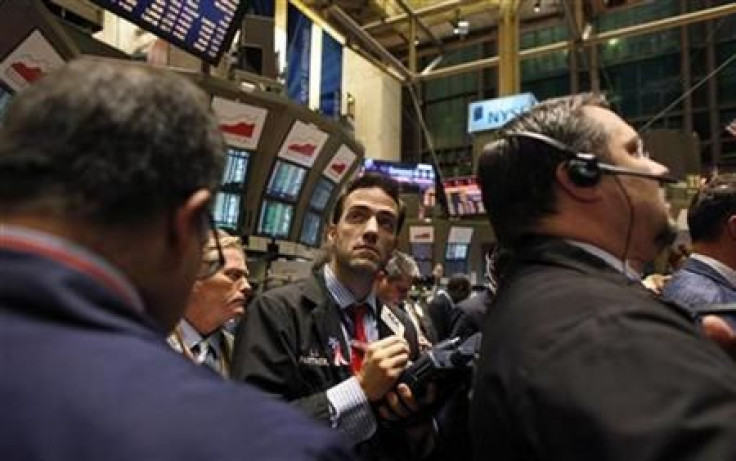US Stock Futures Signal Slightly Higher Open Ahead Of Jobless Claim, Trade Deficit Report

The U.S. stock index futures point to a slightly higher open Thursday ahead of the Labor Department's weekly jobless claims data and the Bureau of Economic Analysis's trade deficit report.
The futures on the Dow Jones Industrial Average were up 0.12 percent, the futures on the Standard & Poor's 500 Index were up 0.05 percent and those on the Nasdaq 100 Index were up 0.13 percent.
Investors are likely to focus on the weekly U.S. jobless claims data to be reported Thursday. The initial jobless claims report, which measures the number of individuals who filed for unemployment insurance for the first time last week, is expected to rise to 370,000 in the week ending Oct. 6, up from 367,000 in the previous week.
Investors are also expected to focus on the trade deficit report to be released Thursday. The trade deficit, which measures the difference in value between the imported and exported goods and services over the reported period, is expected to rise to $44 billion in August from $42 billion in July.
On Wednesday, the U.S. markets fell as investors continued to have concerns that the weakening of global economic conditions has affected the quarterly earnings of companies. The Dow Jones Industrial Average fell 0.95 percent, the S&P 500 Index was down 0.62 percent and the Nasdaq Composite Index declined 0.43 percent.
Most of the European markets fell Thursday as investor sentiment turned negative amid the revived concerns about the debt crisis affecting the euro zone as the economic and financial instability faced by Spain continued to deepen. Market sentiment was weighed down following the decision Wednesday by Standard & Poor’s to cut the sovereign credit rating of Spain to BBB-minus down from BBB-plus.
London's FTSE 100 was marginally up 3.06 points, Germany's DAX 30 index fell 21.77 points and France's CAC 40 declined 11.65 points.
Asian markets fell Thursday as investor sentiment was weighed down by the weak machine orders data from Japan, giving further indication of the soft global demand and the worsening economic growth. According to the data released Thursday by the Cabinet Office, Japan’s core machinery orders declined 3.3 percent in August down from the 4.6 percent increase in July.
© Copyright IBTimes 2024. All rights reserved.











